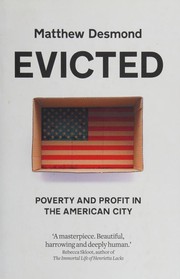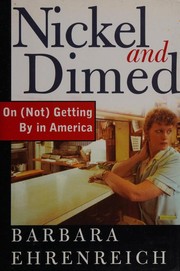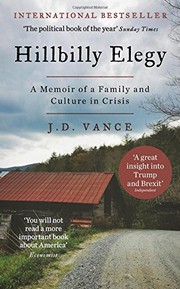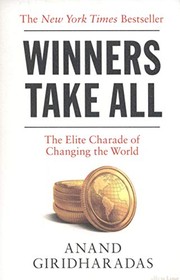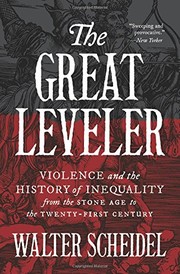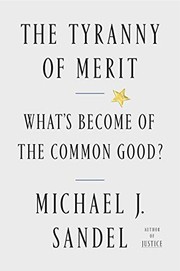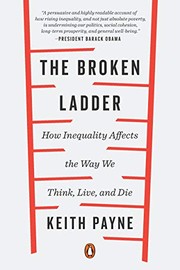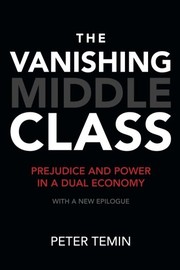Are you interested in understanding the complex issue of inequality? Look no further than these 20 best books on inequality that will challenge your perspective and shed light on the factors contributing to this pervasive problem. From thought-provoking sociological analyses to gripping personal narratives, these books offer a comprehensive exploration of inequality in all its forms. Whether you’re a seasoned activist or simply curious about the topic, these inequality books are a must-read for anyone seeking to better understand and address this pressing issue.
Contents
- 1 The Color of Law
- 2 Evicted
- 3 The New Jim Crow
- 4 Capital in the Twenty-First Century
- 5 Nickel and Dimed
- 6 The Price of Inequality
- 7 Hillbilly Elegy
- 8 The Spirit Level
- 9 The Divide
- 10 Winners Take All
- 11 The Great Leveler
- 12 The Age of Surveillance Capitalism
- 13 The Tyranny of Merit
- 14 The Unwinding
- 15 The Second Machine Age
- 16 The Broken Ladder
- 17 The Price We Pay
- 18 The Vanishing Middle Class
- 19 The Crisis of the Middle-Class Constitution
- 20 The End of Loyalty
- 21 Conclusion
The Color of Law
by Richard Rothstein
The Color of Law by Richard Rothstein is a thought-provoking book on inequality that exposes the deeply rooted structural racism within the American housing system. Through meticulous research and compelling storytelling, Rothstein uncovers how government policies and practices have perpetuated segregation and created a stark divide between communities of different races and socioeconomic backgrounds.
Evicted
by Matthew Desmond
Evicted by Matthew Desmond is a captivating book on inequality that delves deep into the heart-wrenching stories of those who struggle to find a stable place to call home. This thought-provoking masterpiece shines a much-needed light on the brutal realities faced by individuals caught in the unyielding grip of poverty, homelessness, and housing instability.
Desmond’s powerful narrative takes us into the lives of eight families in Milwaukee, Wisconsin, as they navigate a system that often perpetuates their cycle of poverty, leaving them vulnerable to eviction. Through extensive research and firsthand interviews, the author skillfully weaves together these personal accounts, offering an intimate glimpse into the daily challenges faced by those on the margins of society.
With empathy and precision, Desmond exposes the complex web of injustices that contribute to the epidemic of evictions, shedding light on the deep-rooted inequalities that plague our society. He explores the systemic issues that perpetuate housing instability, from discriminatory practices to exploitative landlords, and the devastating impact these realities have on individuals, families, and entire communities.
Evicted is not simply a book about inequality; it is a call to action. Through his meticulous research and compelling storytelling, Desmond challenges us to confront the harsh reality that millions of Americans face each day. He forces us to examine our own biases and complicity in perpetuating a system that perpetuates poverty and homelessness.
This inequality book serves as a powerful reminder that housing instability is not just an individual problem, but a societal one. It exposes the deeply ingrained disparities that exist within our communities and offers a blueprint for change. Desmond’s work forces us to recognize that housing is not just a basic necessity but a fundamental human right that should be accessible to all.
Evicted by Matthew Desmond is an eye-opening exploration of the harsh realities faced by those living on the fringes of society. It challenges us to confront our own biases, question the status quo, and work towards a more equitable society. This book is a must-read for anyone seeking to understand, empathize, and ultimately address the profound inequalities that persist in our world today.
The New Jim Crow
by Michelle Alexander
Introducing “The New Jim Crow” by Michelle Alexander, a groundbreaking book that exposes the deeply entrenched system of racial oppression in America. This thought-provoking masterpiece uncovers the hidden realities that perpetuate a modern-day caste system, hidden behind the guise of the criminal justice system.
This eye-opening book on inequality challenges our preconceived notions and reveals the devastating impact of mass incarceration on communities of color. Alexander explores the ways in which the War on Drugs has been used as a powerful tool to target and control black and brown individuals, effectively creating a new form of racial segregation.
With meticulous research and compelling storytelling, Alexander meticulously dissects the systemic discrimination that perpetuates inequality in our society. She shines a light on the racial biases that exist within the criminal justice system, from biased policing to discriminatory sentencing practices, highlighting the devastating consequences for individuals and communities affected by this deeply flawed system.
In “The New Jim Crow,” Alexander skillfully demonstrates how the prison-industrial complex operates as a mechanism of social control, perpetuating racial hierarchy and maintaining a hidden form of discrimination. By drawing parallels between the historical Jim Crow era and the modern-day criminal justice system, she reveals the stark reality of a justice system that disproportionately targets and punishes people of color, creating a cycle of oppression that is difficult to break.
Through her powerful words, Alexander provides a powerful call to action, urging readers to confront the pervasive racial injustice ingrained within our society. “The New Jim Crow” challenges us to question our own complicity in perpetuating this system and encourages us to work towards a more equitable and just society.
If you are looking for an insightful and thought-provoking book about inequality, “The New Jim Crow” is an essential read. It will challenge your understanding of the criminal justice system and inspire you to join the fight for racial justice and equality.
Capital in the Twenty-First Century
by Thomas Piketty
Capital in the Twenty-First Century is a groundbreaking book that delves into the pressing issue of inequality in our modern world. Written by the renowned French economist Thomas Piketty, this thought-provoking work has captured the attention of readers worldwide.
At its core, Capital in the Twenty-First Century is a profound exploration of the dynamics of wealth and income distribution. Piketty meticulously analyzes historical data from various countries, spanning several centuries, to reveal the deep-rooted patterns of inequality that persist in our societies.
However, this is not merely a book about inequality; it is an enlightening journey that challenges conventional economic theories and offers compelling insights into the forces shaping our global economy. Piketty argues that the accumulation of capital, particularly in the hands of the wealthy, perpetuates inequality, fueling social and economic disparities.
One of the key ideas that Piketty emphasizes is the notion that wealth grows at a faster rate than the overall economy, leading to a concentration of resources in the hands of a few. This concept, known as “capital accumulation,” forms the backbone of his analysis and provides a fresh perspective on the origins and perpetuation of inequality.
Capital in the Twenty-First Century is a book that transcends traditional academic boundaries. It has sparked intense debates among economists, policymakers, and the general public alike. Its comprehensive analysis of historical data, combined with Piketty’s accessible writing style, makes it an essential read for anyone seeking to understand the complex dynamics of wealth distribution in our modern world.
With its thought-provoking arguments, Capital in the Twenty-First Century presents a call to action, urging societies to address the growing disparities and work towards a fairer, more equitable future. Whether you are an avid reader, an economics enthusiast, or simply concerned about the state of our world, this book will undoubtedly leave a lasting impact.
Nickel and Dimed
by Barbara Ehrenreich
“Nickel and Dimed” is a fascinating book on inequality by Barbara Ehrenreich that takes readers on a thought-provoking journey into the lives of America’s working poor.
In this eye-opening book about inequality, Ehrenreich immerses herself in the world of minimum-wage jobs to uncover the harsh realities faced by millions of Americans struggling to make ends meet. Throughout her experiment, she works as a waitress, a maid, and a retail employee, experiencing firsthand the physical and emotional toll that low-wage work takes on individuals and families.
Through her engaging storytelling, Ehrenreich exposes the systemic issues that perpetuate poverty and inequality in our society. She sheds light on the challenges of finding affordable housing, dealing with exploitative employers, and navigating the complex web of welfare programs.
This inequality book challenges conventional wisdom and forces readers to confront the uncomfortable truth that economic prosperity is not equally distributed. Ehrenreich’s immersive account serves as a powerful call to action, urging readers to question the status quo and advocate for meaningful change.
Whether you’re interested in social justice, economics, or simply gaining a deeper understanding of the struggles faced by the working class, “Nickel and Dimed” is a must-read that will leave you pondering the inequalities that persist in our society long after you turn the last page.
The Price of Inequality
by Joseph E. Stiglitz
The Price of Inequality: Understanding the True Cost of Economic Injustice
In his thought-provoking book, The Price of Inequality, Nobel laureate Joseph E. Stiglitz delves into the complex and pressing issue of economic injustice, offering a powerful analysis of the true cost of inequality in society. With captivating clarity, Stiglitz exposes the detrimental consequences of an unequal society, exploring its roots, impacts, and potential solutions.
This eye-opening book about inequality presents a comprehensive examination of how inequality arises and perpetuates itself in various aspects of our lives, from education and healthcare to politics and the justice system. Stiglitz reveals the deep-seated flaws in our economic system that contribute to widening disparities, highlighting the role of corporate power, market distortions, and government policies.
Through a meticulous exploration of data, case studies, and economic theories, Stiglitz challenges commonly held beliefs about the benefits of free markets and trickle-down economics. He argues that inequality is not only morally wrong but also economically harmful, as it undermines social cohesion, stifles innovation, and perpetuates poverty.
This book on inequality is not just an exposé of the problem; it also offers a blueprint for change. Stiglitz proposes bold policy reforms and systemic transformations that could help create a fairer and more inclusive society. From tax reforms and investment in public goods to strengthening workers’ rights and reducing the influence of money in politics, he provides a roadmap for addressing the root causes of inequality.
With its compelling narrative and rigorous analysis, The Price of Inequality challenges readers to critically examine the state of society and the economic systems that shape it. Stiglitz’s insightful and accessible writing style makes this inequality book a captivating read for anyone interested in understanding and tackling the pressing issue of economic injustice.
Hillbilly Elegy
by J.D. Vance
Discover the captivating and thought-provoking journey through the heartland of America with J.D. Vance’s acclaimed memoir, Hillbilly Elegy. This compelling book on inequality delves into the complexities of rural poverty, family dysfunction, and the American Dream.
The Spirit Level
by Richard Wilkinson and Kate Pickett
The Spirit Level is a captivating book about inequality that delves deep into the social and economic consequences of disparities within societies. Written by Richard Wilkinson and Kate Pickett, this thought-provoking book offers a fresh perspective on the detrimental effects of inequality on various aspects of our lives.
Instead of just presenting abstract theories and statistics, The Spirit Level takes a unique approach by exploring the tangible impact of inequality on health, education, crime rates, and even social cohesion. Through extensive research and compelling evidence, Wilkinson and Pickett demonstrate how inequality negatively influences not only those at the bottom of the social ladder but also those at the top.
By using a wide range of examples and case studies from different countries, The Spirit Level paints a comprehensive picture of the consequences of inequality. The authors argue that societies with greater levels of inequality experience higher rates of health problems, lower educational outcomes, increased crime rates, and decreased social trust.
What sets this book apart is its ability to engage readers and challenge their preconceived notions about inequality. The authors provide a fresh perspective on the topic, backed by solid research, which makes it difficult to ignore the implications of inequality on our lives. The Spirit Level is a must-read for anyone interested in understanding the true costs of inequality and its impact on society as a whole.
The Divide
by Jason Hickel
Are you ready to dive into a thought-provoking exploration of the deep-rooted issues surrounding the division of wealth and power in our world? Look no further than “The Divide” by Jason Hickel, a captivating book that delves into the heart of inequality.
Step into a world where the disparities between the haves and have-nots are laid bare, where the gap between the rich and the poor is examined with utmost precision. “The Divide” is not just any book on inequality; it is a powerful expose that reveals the intricate web of economic, social, and political structures that perpetuate this divide.
In this eye-opening journey, Hickel presents an array of staggering facts, drawing on extensive research to showcase the stark reality of our global system. He uncovers the mechanisms that have allowed a small elite to accumulate unimaginable wealth, while billions struggle to meet their basic needs.
But “The Divide” is not solely focused on painting a bleak picture of our world; it is also a call to action. Hickel passionately argues for a transformative approach, challenging the prevailing narrative of development and advocating for a more just and equitable future for all.
Prepare to be captivated by Hickel’s compelling writing style, as he deftly weaves together historical context, economic analysis, and personal stories to shed light on the profound consequences of inequality. With each page, you will gain a deeper understanding of the forces at play and be inspired to question the status quo.
So, if you’re seeking a book about inequality that will leave you both enlightened and motivated to make a difference, “The Divide” is the perfect choice. Embark on this intellectual journey and be prepared to challenge your assumptions about the world we live in.
Winners Take All
by Anand Giridharadas
Winners Take All by Anand Giridharadas is an eye-opening book on inequality that challenges the prevailing narrative of our time: that philanthropy and market-based solutions can solve the world’s most pressing problems. Giridharadas delves deep into the heart of our society’s greatest challenges, exposing the inherent flaws in the system and the ways in which the elite maintain their power and influence.
Through a series of thought-provoking anecdotes and interviews with influential figures, Giridharadas unveils the true nature of our societal problems and the futile attempts to address them through token gestures and superficial change. He argues that the very structures that perpetuate inequality are the same ones that are celebrated and upheld by those in power.
This book about inequality forces us to question the motives behind philanthropy, corporate social responsibility, and the rhetoric of “changing the world.” Giridharadas challenges us to think critically about the systems that perpetuate inequality and to consider alternative solutions that prioritize justice and fairness for all.
With eloquent prose and a keen eye for detail, Giridharadas paints a vivid picture of a society in which the winners truly do take all. This inequality book is a must-read for anyone seeking a deeper understanding of the world we live in and the structures that shape it.
The Great Leveler
by Walter Scheidel
Are you ready to delve into the fascinating world of wealth disparity and the forces that shape our societies? Look no further than “The Great Leveler” by Walter Scheidel, a captivating book that unveils the untold story of inequality throughout human history.
As a renowned historian, Scheidel takes us on a thrilling journey across time, exploring the rise and fall of civilizations, and the inevitable consequences of wealth distribution. This masterfully written book is not just another run-of-the-mill book on inequality; it is a thought-provoking and eye-opening examination of the forces that shape our societies.
From the ancient empires of Rome and Egypt to the modern capitalist societies we live in today, “The Great Leveler” exposes the underlying patterns that have perpetuated inequality throughout history. Scheidel skillfully dissects the various methods societies have employed to maintain or dismantle unequal structures, revealing the harsh realities of power dynamics and social stratification.
Through meticulous research and compelling storytelling, Scheidel challenges our preconceived notions about inequality and offers a fresh perspective on the forces that have shaped our world. He explores the role of violent conflict, state collapse, revolution, and even catastrophic events like pandemics in bringing about significant redistributions of wealth.
Prepare to be captivated by Scheidel’s insights as he presents a captivating argument: that throughout history, only the most extreme and disruptive events have led to significant reductions in inequality. Whether it be the Black Death in medieval Europe or the world wars of the 20th century, “The Great Leveler” urges us to reconsider our understanding of inequality and its potential remedies.
So, if you’re seeking a thought-provoking and enlightening read that goes beyond the typical inequality books, “The Great Leveler” is the perfect choice. Scheidel’s unparalleled expertise and engaging narrative style ensure that this book will leave a lasting impact, challenging your perceptions and deepening your understanding of the forces that have shaped our unequal world.
The Age of Surveillance Capitalism
by Shoshana Zuboff
The Age of Surveillance Capitalism by Shoshana Zuboff is a groundbreaking book that delves into the dark underbelly of the digital age. This thought-provoking work exposes the hidden mechanisms behind the massive accumulation of wealth and power by tech giants, shedding light on a new form of inequality that has emerged in our society.
The Tyranny of Merit
by Michael J. Sandel
The Tyranny of Merit by Michael J. Sandel is a thought-provoking book on the perils of our meritocratic society. In this eye-opening exploration, Sandel challenges the prevailing notion that our merit-based system is fair and just. Instead, he argues that our relentless pursuit of meritocracy has led to deepening inequality and a sense of despair among those who are left behind.
This book about inequality delves into the flaws of meritocracy, questioning the idea that success is solely a result of individual effort and talent. Sandel argues that our obsession with meritocracy has created a winners-take-all society, where those at the top hoard opportunities and resources, leaving little room for social mobility or a sense of common purpose.
Sandel deftly explores the consequences of this meritocratic mindset, highlighting the growing resentment and disillusionment among those who are deemed “less deserving” by society. He challenges readers to question the moral implications of a system that rewards some and punishes others based on arbitrary measures of worthiness.
The Tyranny of Merit is not just another inequality book; it is a call to action. Sandel urges us to reevaluate our understanding of success and to consider alternative frameworks that prioritize the common good over individual achievement. By doing so, he contends, we can begin to build a more just and inclusive society that values the dignity and worth of every individual, regardless of their merit.
The Unwinding
by George Packer
The Unwinding: A Book on Inequality
Step into a world where the American Dream starts to unravel, where the gap between the haves and the have-nots widens, and where the promises of prosperity seem to slip further and further away. Welcome to The Unwinding by George Packer, a captivating book about inequality that lays bare the harsh realities of our modern society.
In this eye-opening narrative, Packer delves deep into the lives of ordinary Americans, weaving together their stories to paint a vivid picture of a nation in flux. Through the lens of real people, he examines the forces that have shaped America’s economic landscape over the past few decades.
Using a masterful mix of journalism, biography, and social commentary, Packer exposes the intricate web of factors contributing to the growing inequality in our society. He explores the rise and fall of industries, the impact of technological advancements, and the corrupting influence of politics and finance.
With meticulous research and compelling storytelling, Packer takes readers on a journey through the lives of individuals from different walks of life – from factory workers and farmers to entrepreneurs and politicians. Each story reveals the harsh consequences of a system that rewards the few at the expense of the many.
Through his engaging prose, Packer challenges our assumptions and forces us to confront uncomfortable truths about the American Dream. He shows us that the path to success is not always paved with hard work and determination, but often riddled with obstacles and inequality.
The Unwinding is a thought-provoking and powerful book that shines a light on the complex forces shaping our society. It is a wake-up call to the deep-rooted inequalities that exist in America and a call to action for a more equitable future.
If you are ready to dive into a compelling exploration of the American experience and the struggles of everyday people in the face of inequality, then The Unwinding is the book you’ve been waiting for.
The Second Machine Age
by Erik Brynjolfsson and Andrew McAfee
The Second Machine Age is a groundbreaking book that delves into the profound impact of technology on our society, economy, and, most importantly, inequality. This thought-provoking masterpiece by Erik Brynjolfsson and Andrew McAfee serves as a wake-up call to the world, highlighting the urgent need to address the growing disparities in our increasingly digitized world.
As technology advances at an unprecedented pace, it has the power to transform industries, create new opportunities, and improve our lives in countless ways. However, this digital revolution also brings along an unsettling consequence: inequality. The authors meticulously examine how technological advancements contribute to a widening gap between the haves and the have-nots, resulting in a society where the benefits of progress are not evenly distributed.
With a captivating narrative, Brynjolfsson and McAfee explore the various dimensions of inequality, shedding light on its causes, consequences, and potential solutions. They argue that the key lies in harnessing the power of technology to not only boost productivity but also create shared prosperity. Through compelling examples and evidence, the authors demonstrate how innovation can be harnessed to bridge the gap and create a more equitable society.
This book is not just an intellectual exercise; it is a call to action. It urges policymakers, entrepreneurs, and individuals alike to confront the challenges posed by the second machine age head-on. By embracing the potential of technology while addressing its unintended consequences, the authors believe that we can build a future that is both technologically advanced and socially inclusive.
The Second Machine Age is a must-read for anyone concerned about the future of our society, economy, and the well-being of its citizens. It is an eye-opening exploration of the profound impact of technology on inequality, filled with insights and ideas that will leave you questioning the status quo and inspired to be part of the solution.
The Broken Ladder
by Keith Payne
The Broken Ladder by Keith Payne is a captivating book about the fascinating and concerning topic of social disparities. In this thought-provoking book on inequality, Payne explores the deep-rooted effects of social stratification in our society.
The Price We Pay
by Marty Makary
The Price We Pay by Marty Makary is a captivating and eye-opening book about the stark realities of our healthcare system. This thought-provoking read exposes the true cost of medical care and delves into the deep-rooted issues of our current healthcare system. In this book on inequality, Makary explores the vast disparities in healthcare access, affordability, and quality, shedding light on the alarming consequences of our broken system. With meticulous research and compelling stories, this inequality book challenges readers to question the status quo and consider the devastating effects of healthcare inequality on individuals and society as a whole. Whether you’re a healthcare professional, a patient, or simply curious about the state of our healthcare system, The Price We Pay is a must-read that will leave you with a newfound understanding of the urgent need for change.
The Vanishing Middle Class
by Peter Temin
The Vanishing Middle Class by Peter Temin is a thought-provoking book on inequality that delves into the alarming disappearance of the middle class in modern society. Delving deep into the intricate web of economic and social factors, Temin paints a vivid picture of the growing divide between the haves and the have-nots. In this eye-opening book about inequality, the author explores the repercussions of this vanishing middle class on society as a whole, raising poignant questions about the future of our economy and the stability of our communities. Through meticulous research and compelling storytelling, Temin sheds light on the intricate complexities of the modern world, making this a must-read inequality book that will challenge your preconceived notions and inspire you to take action.
The Crisis of the Middle-Class Constitution
by Ganesh Sitaraman
Introducing The Crisis of the Middle-Class Constitution, a thought-provoking book on inequality written by Ganesh Sitaraman. In this captivating exploration of America’s socio-political landscape, Sitaraman delves into the deep-rooted issues of economic disparity, social division, and the erosion of the middle class.
Embarking on a journey through history, Sitaraman skillfully weaves together the threads of political theory, constitutional law, and economic analysis to shed light on the alarming rise of inequality in modern society. His insightful observations and meticulous research reveal how the middle class, once the cornerstone of American democracy, is now under threat.
In this book about inequality, Sitaraman challenges the conventional wisdom that economic growth automatically leads to a stronger middle class. He argues that the concentration of wealth and power in the hands of a few poses a grave danger to our democracy, as it undermines the principles of fairness, equal opportunity, and social mobility.
Sitaraman explores various solutions to address the crisis at hand, proposing innovative ideas such as reducing the influence of money in politics, strengthening labor unions, and expanding access to education. Drawing inspiration from the progressive era and the New Deal, he advocates for a renewed commitment to economic equality and a reimagined social contract that ensures a fairer distribution of resources.
With his eloquent prose and compelling arguments, Sitaraman brings urgency to the discussion of inequality, compelling readers to confront the consequences of a divided society and contemplate the future of the American middle class. This insightful and timely inequality book serves as a call to action, challenging us to reimagine and rebuild a society that values the well-being of all its citizens.
The End of Loyalty
by Rick Wartzman
“The End of Loyalty” by Rick Wartzman is not just another book about inequality; it is a thought-provoking exploration into the erosion of loyalty in the modern world. Wartzman delves deep into the dynamics of loyalty, examining how it has shifted and diminished over time. This captivating read offers a fresh perspective on the growing disparities that plague society, making it a must-read for anyone interested in understanding the complexities of our evolving social landscape. Prepare to be enlightened and challenged as Wartzman uncovers the intricate web of factors that have contributed to the inequality we see today.
Conclusion
After exploring the vast landscape of literature, we have compiled a list of the 20 best books about inequality that will challenge your perspective and ignite a passion for change. These books delve deep into the complexities of social and economic disparity, offering powerful narratives and thought-provoking analyses. Whether you seek to understand the historical roots of inequality or explore its modern manifestations, these books will provide you with the knowledge and empathy necessary to navigate this pressing issue. So, grab a book from our list and embark on a transformative journey towards a more equitable world.

